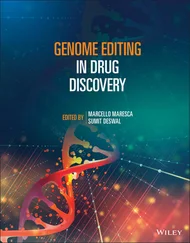Genome - Matt Ridley
Здесь есть возможность читать онлайн «Genome - Matt Ridley» — ознакомительный отрывок электронной книги совершенно бесплатно, а после прочтения отрывка купить полную версию. В некоторых случаях можно слушать аудио, скачать через торрент в формате fb2 и присутствует краткое содержание. Жанр: Старинная литература, на английском языке. Описание произведения, (предисловие) а так же отзывы посетителей доступны на портале библиотеки ЛибКат.
- Название:Matt Ridley
- Автор:
- Жанр:
- Год:неизвестен
- ISBN:нет данных
- Рейтинг книги:5 / 5. Голосов: 1
-
Избранное:Добавить в избранное
- Отзывы:
-
Ваша оценка:
- 100
- 1
- 2
- 3
- 4
- 5
Matt Ridley: краткое содержание, описание и аннотация
Предлагаем к чтению аннотацию, описание, краткое содержание или предисловие (зависит от того, что написал сам автор книги «Matt Ridley»). Если вы не нашли необходимую информацию о книге — напишите в комментариях, мы постараемся отыскать её.
Matt Ridley — читать онлайн ознакомительный отрывок
Ниже представлен текст книги, разбитый по страницам. Система сохранения места последней прочитанной страницы, позволяет с удобством читать онлайн бесплатно книгу «Matt Ridley», без необходимости каждый раз заново искать на чём Вы остановились. Поставьте закладку, и сможете в любой момент перейти на страницу, на которой закончили чтение.
Интервал:
Закладка:
and hearing difficulties, she has devised written tests, too. For example, consider the following pair of sentences: 'He was very happy last week when he was first.' 'He was very happy last week when he is first.' Most people immediately recognise that the first is grammatical and the second is not. SLI people think they are both acceptable statements. It is hard to conceive how this could be due to a hearing or speaking difficulty.10
None the less, the speaking-and-hearing theorists have not given up. They have recently shown that SLI people have problems with
'sound masking', whereby they fail to notice a pure tone when it is masked by preceding or following noise, unless the tone is forty-five decibels more intense than is detectable to other people. In other words, SLI people have more trouble picking out the subtler sounds of speech from the stream of louder sounds, so they might, for example, miss the '-ed' on the end of a word.
But instead of supporting the view that this explains the entire range of SLI symptoms, including the difficulty with grammatical rules, this lends credence to a much more interesting, evolutionary explanation: that the speech and hearing parts of the brain are next door to the grammar parts and both are damaged by S L I . SLI results from damage to the brain caused in the third trimester of pregnancy by an unusual version of a gene on chromosome 7.
Magnetic-resonance imaging confirms the existence of the brain lesion and the rough location. It occurs, not surprisingly, in one of the two areas devoted to speech and language processing, the areas known as Broca's and Wernicke's areas.
There are two areas in the brains of monkeys that correspond precisely to these areas. The Broca-homologue is used for controlling the muscles of the monkey's face, larynx, tongue and mouth. The Wernicke-homologue is used for recognising sound sequences and the calls of other monkeys. These are exactly the non-linguistic problems that many SLI people have: controlling facial muscles and hearing sounds distinctly. In other words, when ancestral human beings first evolved a language instinct, it grew in the region devoted to sound production and processing. That sound-production and 1 0 2 G E N O M E
processing module remained, with its connections to facial muscles and ears, but the language instinct module grew on top of it, with its innate capacity for imposing the rules of grammar on the vocabulary of sounds used by members of the species. Thus, although no other primate can learn grammatical language at all — and we are indebted to many diligent, sometimes gullible and certainly wishful trainers of chimpanzees and gorillas for thoroughly exhausting all possibilities to the contrary - language is intimately physically connected with sound production and processing. (Yet not too intimately: deaf people redirect the input and output of the language module to the eyes and hands respectively.) A genetic lesion in that part of the brain therefore affects grammatical ability, speech and hearing - all three modules.11
No better proof could be adduced for William James's nineteenth-century conjecture that human beings evolved their complex behaviour by adding instincts to those of their ancestors, not by replacing instincts with learning. James's theory was resurrected in the late 1980s by a group of scientists calling themselves evolutionary psychologists. Prominent among them were the anthropologist John Tooby, the psychologist Leda Cosmides and the psycho-linguist Steven Pinker. Their argument, in a nutshell, is this. The main goal of twentieth-century social science has been to trace the ways in which our behaviour is influenced by the social environment; instead, we could turn the problem on its head and trace the ways in which the social environment is the product of our innate social instincts.
Thus the fact that all people smile at happiness and frown when worried, or that men from all cultures find youthful features sexually attractive in women, may be expressions of instinct, not culture. Or the universality of romantic love and religious belief might imply that these are influenced by instinct more than tradition. Culture, Tooby and Cosmides hypothesised, is the product of individual psychology more than vice versa. Moreover, it has been a gigantic mistake to oppose nature to nurture, because all learning depends on innate capacities to learn and innate constraints upon what is learnt. For instance, it is much easier to teach a monkey (and a man) I N S T I N C T 1 0 3
to fear snakes than it is to teach it to fear flowers. But you still have to teach it. Fear of snakes is an instinct that has to be learnt.12
The 'evolutionary' in evolutionary psychology refers not so much to an interest in descent with modification, nor to the process of natural selection itself - interesting though these are, they are inaccessible to modern study in the case of the human mind, because they happen too slowly - but to the third feature of the Darwinian paradigm: the concept of adaptation. Complex biological organs can be reverse-engineered to discern what they are 'designed' to do, in just the same way that sophisticated machines can be so studied.
Steven Pinker is fond of pulling from his pocket a complicated thing designed for pitting olives to explain the process of reverse engineering. Leda Cosmides prefers a Swiss-army knife to make a similar point. In each case, the machines are meaningless except when described in terms of their particular function: what is this blade for? It would be meaningless to describe the working of a camera without reference to the fact that it is designed for the making of images. In the same way, it is meaningless to describe the human (or animal) eye without mentioning that it is specifically designed for approximately the same purpose.
Pinker and Cosmides both contend that the same applies to the human brain. Its modules, like the different blades of a Swiss-army knife, are most probably designed for particular functions. The alternative, that the brain is equipped with random complexity, from which its different functions fall out as fortunate by-products of the physics of complexity - an idea still favoured by Chomsky - defies all evidence. There is simply nothing to support the conjecture that the more detailed you make a network of microprocessors, the more functions they will acquire. Indeed, the 'connectionist' approach to neural networks, largely misled by the image of the brain as a general-purpose network of neurons and synapses, has tested the idea thoroughly and found it wanting. Pre-programmed design is required for the solving of pre-ordained problems.
There is a particular historical irony here The concept of design in nature was once one of the strongest arguments advanced against 1 0 4 G E N O M E
evolution. Indeed, it was the argument from design that kept evolutionary ideas at bay throughout the first half of the nineteenth century. Its most able exponent, William Paley, famously observed that if you found a stone on the ground, you could conclude little of interest about how it got there. But if you found a watch, you would be forced to conclude that somewhere there was a watchmaker. Thus the exquisite, functional design apparent in living creatures was manifest evidence for God. It was Darwin's genius to use the argument from design just as explicitly but in the service of the opposite conclusion: to show that Paley was wrong. A 'blind watchmaker' (in Richard Dawkins's phrase) called natural selection, acting step by step on the natural variation in the creature's body, over many millions of years and many millions of individuals, could just as easily account for complex adaptation. So successfully has Darwin's hypothesis been supported that complex adaptation is now considered the primary evidence that natural selection has been at work.13
Читать дальшеИнтервал:
Закладка:
Похожие книги на «Matt Ridley»
Представляем Вашему вниманию похожие книги на «Matt Ridley» списком для выбора. Мы отобрали схожую по названию и смыслу литературу в надежде предоставить читателям больше вариантов отыскать новые, интересные, ещё непрочитанные произведения.
Обсуждение, отзывы о книге «Matt Ridley» и просто собственные мнения читателей. Оставьте ваши комментарии, напишите, что Вы думаете о произведении, его смысле или главных героях. Укажите что конкретно понравилось, а что нет, и почему Вы так считаете.












